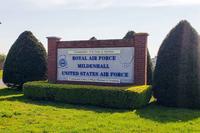NEW ORLEANS -- The Marine Corps has expanded the Regional, Culture and Language Familiarization program to include the Reserve component. The program originally began in 2012 to navigate the culturally-complex global operating environments in support of Marine Corps missions, according to Marine Corps administrative order 196/13.
Eligible Marines are automatically and randomly assigned a region of study during The Basic School for officers or upon promotion to sergeant for enlisted, according to Marine Forces Reserve Command Language Coordinator Isley Lundgren. There are 17 cultural regions of study, which include areas such as South America, North Africa, the Balkans and the Caucasus. Each region generally contains more than one country, but will have only one or two languages, considered “core” and “secondary” languages within that region, that are part of the required curriculum. The program focuses on three areas of study: culture general, culture specific and tactical language, to develop officers’ and non-commissioned officers’ foreign knowledge and capabilities. This will allow Marines a better chance of managing their operational responsibilities in different cultures. “While language training is required, it is not the main focus of the programs,” said Lundgren. “For enlisted Marines there is approximately 80 hours of language training to be completed within two ranks of receiving the region assignment.” The program has a comprehensive language portion, but the cultural training portion is more in-depth. Marines learn the fundamental cultural aspects of a region, such as history, politics, economics, art and international relations between countries in that region, said Lundgren. The RCLF program is required for officers commissioned on or after April 1, 2009, warrant officers commissioned on or after Feb. 1, 2011 and active-component sergeants with a date of rank on or after Oct. 1, 2012. Reserve sergeants with a date of rank on or after May 1, 2013 are required to participate in the program. Active-duty Marines keep their region assignment if transferred to the reserve component. Marines who are exempt from the program are still encouraged to study a specific RCLF region by completing the prescribed study blocks and language curriculum on MarineNet. However, Lundgren said, Marines who complete training for a specific region before they reach the rank of sergeant are not guaranteed to be assigned that region upon promotion to sergeant. Lundgren said there is a waiver available for Marines who wish to switch their assignment to a region they are already proficient in. However, Marines are only eligible if their regional proficiency is related to their military occupational specialty, for example, a crypto-linguist.























